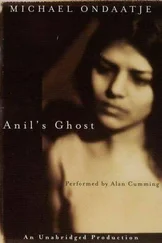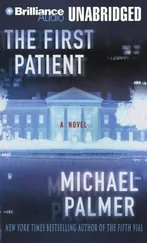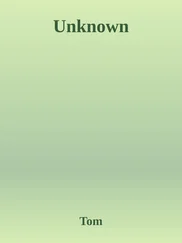Michael Ondaatje - The English Patient
Здесь есть возможность читать онлайн «Michael Ondaatje - The English Patient» весь текст электронной книги совершенно бесплатно (целиком полную версию без сокращений). В некоторых случаях можно слушать аудио, скачать через торрент в формате fb2 и присутствует краткое содержание. Жанр: Старинная литература, на русском языке. Описание произведения, (предисловие) а так же отзывы посетителей доступны на портале библиотеки ЛибКат.
- Название:The English Patient
- Автор:
- Жанр:
- Год:неизвестен
- ISBN:нет данных
- Рейтинг книги:4 / 5. Голосов: 1
-
Избранное:Добавить в избранное
- Отзывы:
-
Ваша оценка:
- 80
- 1
- 2
- 3
- 4
- 5
The English Patient: краткое содержание, описание и аннотация
Предлагаем к чтению аннотацию, описание, краткое содержание или предисловие (зависит от того, что написал сам автор книги «The English Patient»). Если вы не нашли необходимую информацию о книге — напишите в комментариях, мы постараемся отыскать её.
The English Patient — читать онлайн бесплатно полную книгу (весь текст) целиком
Ниже представлен текст книги, разбитый по страницам. Система сохранения места последней прочитанной страницы, позволяет с удобством читать онлайн бесплатно книгу «The English Patient», без необходимости каждый раз заново искать на чём Вы остановились. Поставьте закладку, и сможете в любой момент перейти на страницу, на которой закончили чтение.
Интервал:
Закладка:
“Who was talking, back then?”
“ ‘Death means you are in the third person .’ ”
All day they have shared the ampoules of morphine. To unthread the story out of him, Caravaggio travels within the code of signals. When the burned man slows down, or when Caravaggio feels he is not catching everything—the love affair, the death of Madox—he picks up the syringe from the kidney-shaped enamel tin, breaks the glass tip off an ampoule with the pressure of a knuckle and loads it. He is blunt about all this now with Hana, having ripped the sleeve off his left arm completely. Almásy wears just a grey singlet, so his black arm lies bare under the sheet.
Each swallow of morphine by the body opens a further door, or he leaps back to the cave paintings or to a buried plane or lingers once more with the woman beside him under a fan, her cheek against his stomach.
Caravaggio picks up the Herodotus. He turns a page, comes over a dune to discover the Gilf Kebir, Uweinat, Gebel Kissu. When Almasy speaks he stays alongside him reordering the events. Only desire makes the story errant, flickering like a compass needle. And this is the world of nomads in any case, an apocryphal story. A mind travelling east and west in the disguise of sandstorm.
On the floor of the Cave of Swimmers, after her husband had crashed their plane, he had cut open and stretched out the parachute she had been carrying. She lowered herself onto it, grimacing with the pain of her injuries. He placed his fingers gently into her hair, searching for other wounds, then touched her shoulders and her feet.
Now in the cave it was her beauty he did not want to lose, the grace of her, these limbs. He knew he already had her nature tight in his fist.
She was a woman who translated her face when she put on makeup. Entering a party, climbing into a bed, she had painted on blood lipstick, a smear of vermilion over each eye.
He looked up to the one cave painting and stole the colours from it. The ochre went into her face, he daubed blue around her eyes. He walked across the cave, his hands thick with red, and combed his fingers through her hair. Then all of her skin, so her knee that had poked out of the plane that first day was saffron. The pubis. Hoops of colour around her legs so she would be immune to the human. There were traditions he had discovered in Herodotus in which old warriors celebrated their loved ones by locating and holding them in whatever world made them eternal—a colourful fluid, a song, a rock drawing.
It was already cold in the cave. He wrapped the parachute around her for warmth. He lit one small fire and burned the acacia twigs and waved smoke into all the corners of the cave. He found he could not speak directly to her, so he spoke formally, his voice against the bounce of the cave walls. I’m going for help now, Katharine. Do you understand? There is another plane nearby, but there is no petrol. I might meet a caravan or a jeep, which means I will be back sooner. I don’t know . He pulled out the copy of Herodotus and placed it beside her. It was September 1939. He walked out of the cave, out of the flare of firelight, down through darkness and into the desert full of moon.
He climbed down the boulders to the base of the plateau and stood there.
No truck. No plane. No compass. Only moon and his shadow. He found the old stone marker from the past that located the direction of El Taj, north-northwest. He memorized the angle of his shadow and started walking. Seventy miles away was the souk with the street of clocks. Water in a skin bag he had filled from the ain hung from his shoulder and sloshed like a placenta.
There were two periods of time when he could not move. At noon, when the shadow was under him, and at twilight, between sunset and the appearance of the stars. Then everything on the disc of the desert was the same. If he moved, he might err as much as ninety degrees off his course. He waited for the live chart of stars, then moved forward reading them every hour. In the past, when they had had desert guides, they would hang a lantern from a long pole and the rest of them would follow the bounce of light above the star reader.
A man walks as fast as a camel. Two and a half miles an hour. If lucky, he would come upon ostrich eggs. If unlucky, a sandstorm would erase everything. He walked for three days without any food. He refused to think about her. If he got to El Taj he would eat abra , which the Goran tribes made out of colocynth, boiling the pips to get rid of bitterness and then crushing it along with dates and locusts. He would walk through the street of clocks and alabaster. May God make safety your companion, Madox had said. Good-bye. A wave. There is God only in the desert, he wanted to acknowledge that now. Outside of this there was just trade and power, money and war. Financial and military despots shaped the world.
He was in broken country, had moved from sand to rock. He refused to think about her. Then hills emerged like mediaeval castles. He walked till he stepped with his shadow into the shadow of a mountain. Mimosa shrubs. Colocynths. He yelled out her name into the rocks. For echo is the soul of the voice exciting itself in hollow places .
Then there was El Taj. He had imagined the street of mirrors for most of his journey. When he got to the outskirts of the settlements, English military jeeps surrounded him and took him away, not listening to his story of the woman injured at Uweinat, just seventy miles away, listening in fact to nothing he said.
“Are you telling me the English did not believe you? No one listened to you?”
“No one listened.”
“Why?”
“I didn’t give them a right name.”
“Yours?”
“I gave them mine.”
“Then what—”
“Hers . Her name. The name of her husband.”
“What did you say?”
He says nothing.
“Wake up! What did you say?”
“I said she was my wife . I said Katharine . Her husband was dead. I said she was badly injured, in a cave in the Gilf Kebir, at Uweinat, north of the Ain Dua well. She needed water. She needed food. I would go back with them to guide them. I said all I wanted was a jeep. One of their damn jeeps … Perhaps I seemed like one of those mad desert prophets after the journey, but I don’t think so. The war was beginning already. They were just pulling spies in out of the desert. Everyone with a foreign name who drifted into these small oasis towns was suspect. She was just seventy miles away and they wouldn’t listen. Some stray English outfit in El Taj. I must have gone berserk then. They were using these wicker prisons, size of a shower. I was put into one and moved by truck. I was flailing around in there until I fell off onto the street, still in it. I was yelling Katharine’s name. Yelling the Gilf Kebir. Whereas the only name I should have yelled, dropped like a calling card into their hands, was Clifton’s.
“They hauled me up into the truck again. I was just another possible second-rate spy. Just another international bastard.”
Caravaggio wants to rise and walk away from this villa, the country, the detritus of a war. He is just a thief. What Caravaggio wants is his arms around the sapper and Hana or, better, people of his own age, in a bar where he knows everyone, where he can dance and talk with a woman, rest his head on her shoulder, lean his head against her brow, whatever, but he knows first he must get out of this desert, its architecture of morphine. He needs to pull away from the invisible road to El Taj. This man he believes to be Almásy has used him and the morphine to return to his own world, for his own sadness. It no longer matters which side he was on during the war.
But Caravaggio leans forward.
Читать дальшеИнтервал:
Закладка:
Похожие книги на «The English Patient»
Представляем Вашему вниманию похожие книги на «The English Patient» списком для выбора. Мы отобрали схожую по названию и смыслу литературу в надежде предоставить читателям больше вариантов отыскать новые, интересные, ещё непрочитанные произведения.
Обсуждение, отзывы о книге «The English Patient» и просто собственные мнения читателей. Оставьте ваши комментарии, напишите, что Вы думаете о произведении, его смысле или главных героях. Укажите что конкретно понравилось, а что нет, и почему Вы так считаете.












